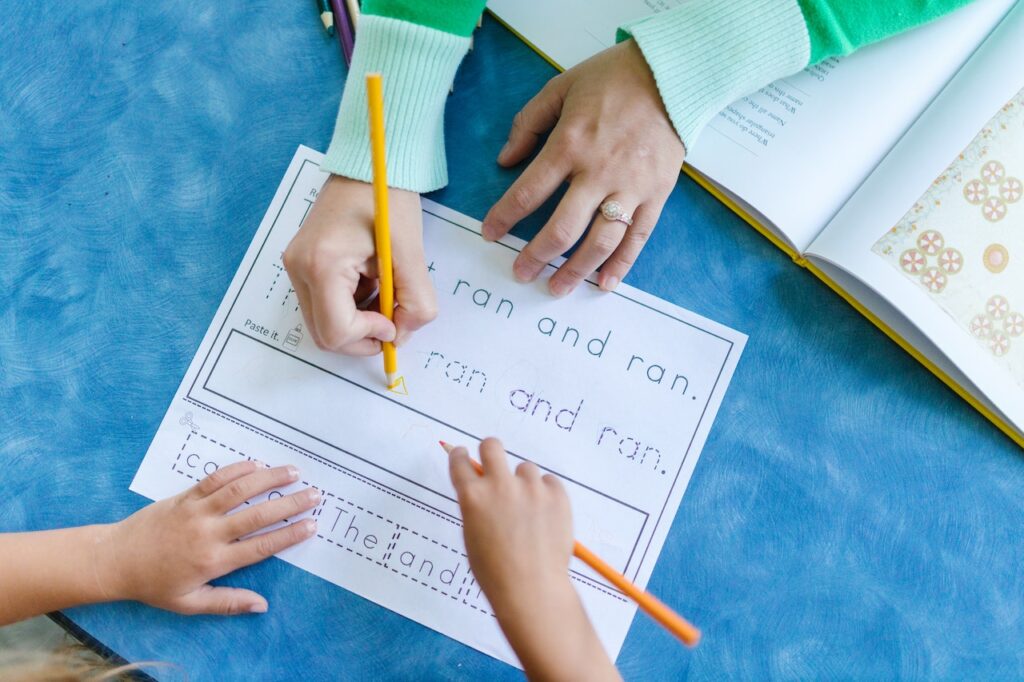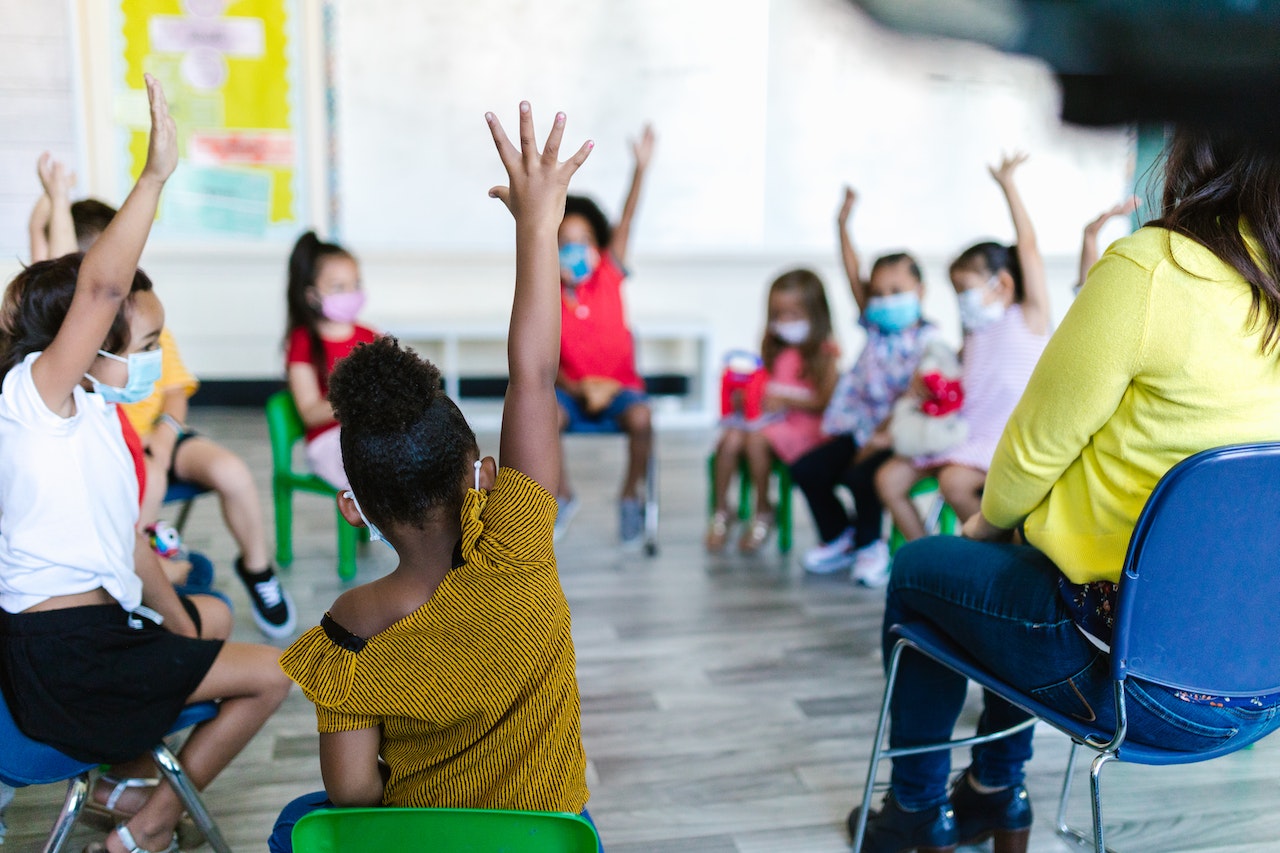I take pride in being a lifelong learner. I am always seeking to grow and learn more. I’ve been lucky to have accomplished mentors and access to excellent professional development throughout my career. It’s this embracing of a growth mindset that has always made me hesitant to call myself an expert. The term makes me think of someone who knows everything – I certainly don’t purport to know everything. I love grappling with difficult questions that have no easy answers. This is particularly true when it comes to my own journey with teaching reading and writing. I am eager and excited to dive deeper into understanding how to teach reading and the intricacies of how brains learn to read.
As a teacher of reading, one question that continues to drive me is: “Who is my student as a reader… and what do they need?”
Finding myself in leadership positions in schools where I have the privilege of supporting other teachers, especially in regards to teaching literacy, I’ve been reflecting more on my journey and how I came to be driven by this specific question. I began my career as an elementary special education teacher, seeking out and voraciously consuming any info I could find about how to help my students learn to read. Because my classroom usually had students of various ages, grades and learning disabilities, I knew early on that I would need a LOT of different knowledge, tools and resources to support each of them in becoming readers and writers. When I finally found highly structured, systematic and explicit approaches to teaching decoding and encoding, I was thrilled. Seeing my students’ success as I implemented various elements of these approaches gave me a deeper understanding of effective phonics instruction and assessment. It also revealed that the potential was not in a single methodology or curriculum, but rather in the power of knowing my students as readers and leveraging this knowledge to help guide and shape their journey as readers and spellers.

This realization led me to grapple with all kinds of questions in my quest for that deeper knowing. I watched many of my students respond differently to the same instruction or task, which sparked more questions. I began to view curricula and instructional approaches not as good or bad, but as effective or ineffective for individual learners, depending on their needs and where they were in their literacy journey. Below are some of the many questions I began asking about each of my students:
- How accurately do they hear individual phonemes (sounds) in words?
- How easily or automatically can they blend phonemes into words and how many – two? Three? Four?
- Can they segment words into their individual phonemes – up to how many so far?
- Do they have letter-sound correspondence and which ones specifically?
- What kinds of words are easy for them to decode and/or recognize?
- Are they accurately reading words with short vowels and consonants?
- What about with digraphs or beginning and ending consonant clusters?
- Do they know the short vowel sounds in isolation, but are not yet pronouncing them accurately within words? Are they fine with short vowels until the word has a digraph?
- Do they recognize any long vowel patterns, like vowel digraphs or diphthongs?
- Can they decode any multisyllabic words – any words with just common suffixes, or other kinds of syllables?
- What kinds of sentences and texts are easy or challenging for them? How much text on a page can they tolerate right now without fatiguing?
- What of any of these reading skills show up in their writing and spelling?
- Do they say aloud the right sound but write down a letter that doesn’t match? Why? What about encoding a word in isolation vs. when writing a sentence?
These and so many more questions swirl in my head as I work with my students and think about where they are in their reading & spelling development. They inform so many of my instructional decisions and my sense of what students are ready for next. If this sounds exhausting – it is! But I also couldn’t stop asking these kinds of questions once I knew to pay attention in this way to my students as readers.

If learning how to help students decode and encode was the start of my journey to know my students as readers, it certainly is not the end. Once I felt I had a solid foundation in understanding the essential role of phonics instruction and assessment, I realized I needed to grow in my attention and understanding of other important aspects of their reading personas as well. Later in my career as a Learning Specialist, I spent a lot of time in other teachers’ classrooms across grade levels. I remember the first time I watched an expert teacher give a short, explicit whole class lesson and then provide different ways for students to engage in independent reading with books at their level, while she provided small group instruction tailored to students’ needs in phonics/word study, fluency, and/or comprehension. I was riveted by seeing such thoughtful planning that met each student where they were but in a way that looked very different from what I had been doing. It was also very different from other classrooms I’d seen where teachers taught one skill or one book to the whole class, regardless of each student’s readiness or skill set. I watched teachers do excellent modeling, making thinking patterns around reading more explicit and visible, and watched students trying out different strategies independently. I saw students be so engaged and excited to spend time reading, even dyslexic students who I worked with, and I saw intentional work being done to provide choices to students and develop their own voice and identities as readers and writers.
From watching other teachers, I learned to ask other essential questions about my students as readers, like:
- What motivates them?
- What kind of books do they enjoy and choose for themselves?
- What do they think, say and write about the books they read or the characters they encounter?
- What connections do they make between themselves and books, or between books they’ve read?
- Do they understand how to find books that are right for them instead of always relying on a teacher for this?
- How and when should students transfer their reading skills from more controlled or decodable texts to other types of texts and literature?
These kinds of questions greatly informed my instruction as well. They helped me know my students in new and exciting ways and also made a big difference in how effectively I could meet the needs of lots of different kinds of readers.
Certainly this is not an exhaustive retelling of my growth as a teacher or even of the things I’ve needed to think about and learn (and relearn) about teaching reading. But I share these pieces to reflect on the iterative process we all go through as educators to know our students and provide what they need. My journey may sound familiar to many teachers because they grew and changed in similar ways. Or many may have had journeys that were very different or even the opposite of mine. Either way, I think as educators our shared goal is connecting students to the joy that is language and books and stories. It is helping students find their voice as readers and writers. Certainly, providing effective, systematic phonics instruction is a part of that journey. Ultimately, our students need us to ask all kinds of questions about who they are as readers if we are to deeply know them and what they need from us. Perhaps the only thing I’m an expert in is knowing how much I need to learn about my students to truly teach them well.
What questions do you ask to understand who your students are as readers? Which ones did you learn to ask first? What are some questions you’ve recently started asking that better help you know your readers? Post your thoughts in the comments.
This is the second part of Emily’s six-part blog series. Click below to sign up for email alerts on Emily’s upcoming posts.



One response
[…] experience, I reflected on how curiosity led me to perhaps my favorite question. And if you read my last post about knowing our students as readers, you’ve likely noticed just how much I value asking questions. Surprise — I saved the best for […]